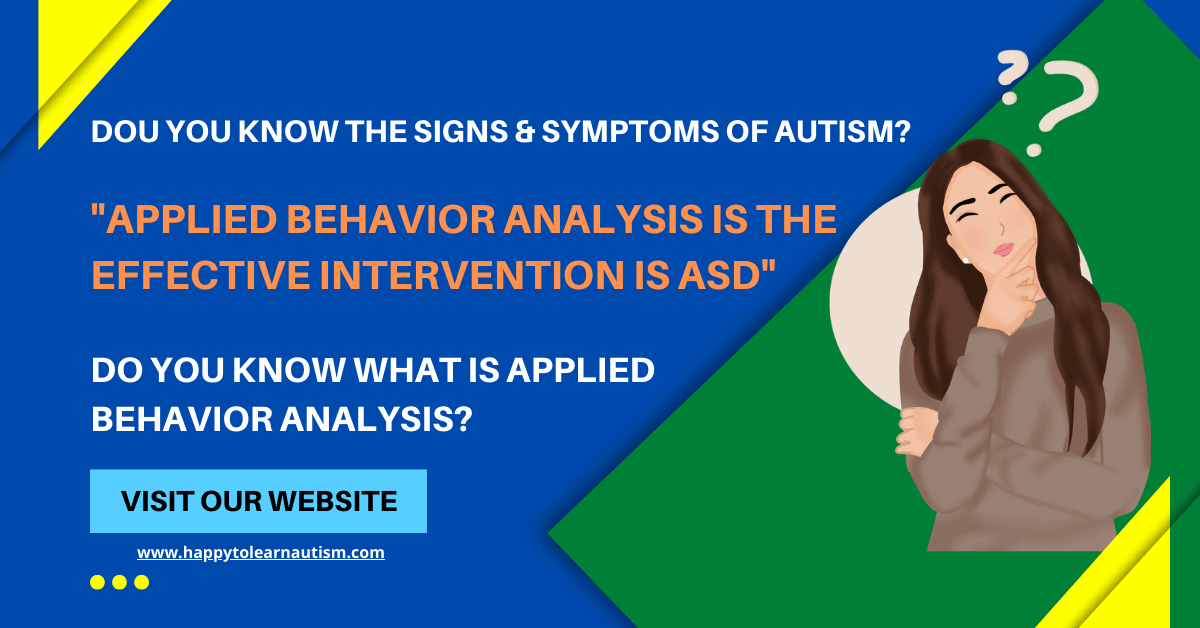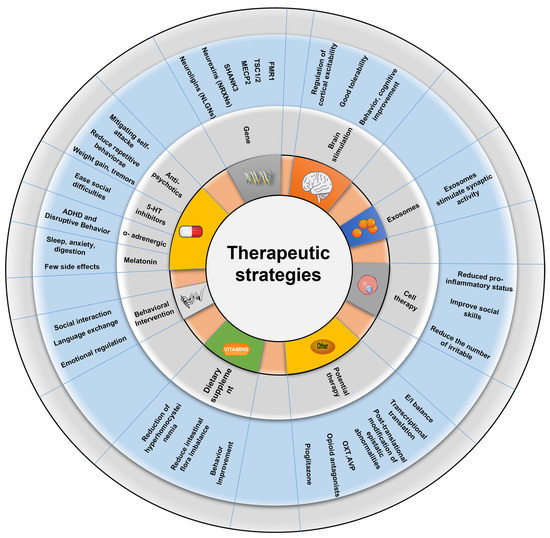Recognizing emotional signals through Autism Therapist-backed methods
Wiki Article
Comprehending the Influence of Behavioral Autism on Day-to-day Live and Social Interactions
You may not understand exactly how deeply behavior autism affects day-to-day live and social interactions. Individuals on the range frequently browse a world filled up with communication hurdles and sensory overload. These difficulties can lead to stress and seclusion, impacting their partnerships and overall well-being. Comprehending these nuances is crucial for promoting helpful settings. What techniques can we carry out to produce more inclusive rooms and significant links? The answers may stun you.Specifying Behavioral Autism and Its Attributes
Behavior autism, usually referred to as autism range problem (ASD), incorporates a variety of conditions identified by obstacles in social interaction, communication, and repeated actions. You could see that people with ASD commonly struggle to analyze social signs, which can cause misunderstandings in discussions. They might discover it tough to establish eye contact or take part in tiny talk, making social scenarios feel overwhelming.Interaction troubles can show up in numerous methods, from delayed speech advancement to a preference for using fewer words. Repeated actions, such as hand-flapping or rocking, can act as coping devices to handle stress and anxiety or sensory overload. These features can greatly influence life, making it crucial for you to understand and support those with ASD. By identifying these traits, you can foster an environment that advertises approval and motivates effective interaction, assisting people with autism grow in their everyday interactions.
The Spectrum of Autism: Comprehending Variability in Habits
Autism range condition (ASD) isn't a one-size-fits-all medical diagnosis; it differs commonly amongst people. You may experience people that are highly spoken and involve easily in conversations, while others might prefer singular activities or communicate non-verbally.Furthermore, the method people with ASD react to sensory input can differ significantly; some could be bewildered by loud sounds or bright lights, whereas others flourish in boosting environments. The range likewise consists of differences in social communications; some individuals may battle to interpret social signs, while others browse social setups with loved one ease. Understanding this variability is necessary, as it assists you appreciate each individual's unique experience and dressmaker support to their certain needs, fostering an extra inclusive environment for everybody.
Communication Obstacles Dealt With by People With Autism
When you interact with individuals on the autism range, you might notice their unique communication difficulties. They typically encounter difficulties with both nonverbal and verbal cues, which can impact their social interactions. Comprehending these barriers is necessary for fostering far better links and support.
Verbal Interaction Difficulties
Many individuals on the autism spectrum experience spoken communication difficulties that can significantly affect their everyday interactions. You may discover it testing to share your ideas, sensations, or needs plainly. This can result in irritation for both you and those around you, as misunderstandings happen. You might fight with starting conversations, preserving a subject, or understanding subtleties in speech. Frequently, you could like making use of simple language or repetitive phrases, which can restrict your capability to participate in much deeper conversations. Your tone, speed, or quantity may not align with social assumptions, triggering others to misinterpret your intentions. Acknowledging these obstacles can assist you and your assistance network create strategies to enhance communication and foster much better links with others in your life.Nonverbal Communication Obstacles
Spoken communication isn't the only difficulty individuals on the autism spectrum face; nonverbal interaction barriers can be equally as considerable. You could locate it tough to translate body movement, face expressions, and eye contact, which are necessary for efficient interaction. These challenges can bring about misconceptions or false impressions of social signs, making interactions really feel frustrating or complicated. You may have a hard time to share your very own emotions via nonverbal ways, leaving others unclear of your sensations or intentions. This separate can develop sensations of isolation and frustration. Recognizing these obstacles is important for promoting understanding and compassion in your interactions. By attending to nonverbal interaction, you can locate methods to boost your social experiences and enhance your overall lifestyle.Social Communication Impacts
Social interactions can commonly feel frustrating due to the one-of-a-kind interaction difficulties faced by individuals with autism. Identifying these obstacles can assist you find methods to boost communication, such as practicing social skills in risk-free settings or utilizing visual help. Understanding your demands allows you to navigate social communications with greater self-confidence and ease.Social Communication and Connection Building in Autism
While building partnerships can be challenging for people with autism, understanding their unique point of views and interaction styles can cultivate meaningful links. You may observe that numerous individuals on the spectrum prefer direct communication and might fight with social cues or little talk. By being simple in your interactions, you can assist produce an environment where they feel comfortable.Make the effort to observe and pay attention exactly how they reveal themselves. This insight can direct you in steering discussions much more properly. Participating in shared rate of interests can additionally serve as a bridge to much deeper connections. Whether it's a leisure activity, a favorite program, or a shared passion, these usual threads can open up doors to relationship.
Daily Life Regimen: Browsing Difficulties and Approaches
you could try this out Maneuvering day-to-day life routines can be especially testing for individuals with autism, specifically when unforeseen modifications occur. To navigate these difficulties, consider applying visual timetables or checklists.Establishing a regimen that includes sensory breaks can also be valuable. You can prepare brief breaks throughout your day to reenergize. It's vital to interact with those around you, letting them know your preferences and requirements. This aids develop an understanding environment.
Last but not least, method mindfulness techniques to handle tension and stress and anxiety. Straightforward breathing exercises or basing methods can make a considerable distinction. By incorporating these approaches, you can enhance your everyday routine and decrease disturbances, making life really feel more convenient.
Staminas and Abilities of Individuals on the Autism Range
Recognizing life routines is just one element of the autism experience. Many individuals on the autism range possess remarkable strengths and capacities that set them apart. You might discover that your attention to detail is phenomenal, permitting you to excel in tasks that require precision and emphasis. Your ability to assume outside package can bring about ingenious remedies in different scenarios.Additionally, your memory skills often beam, especially in locations of interest. Aba Therapist. This propensity for maintaining info can make you a valuable source in fields like science, innovation, or art. You may likewise display solid aesthetic reasoning, allowing you to visualize intricate principles and solve troubles artistically
Furthermore, your unique perspective on the globe can promote empathy and understanding in others, enriching social communications. Embracing these strengths not just enhances your self-confidence yet likewise assists others appreciate the varied abilities you offer the table.
Developing Inclusive Environments for People With Autism
Developing inclusive environments for people with autism starts with creating sensory-friendly spaces that accommodate their distinct demands. You can additionally cultivate possibilities for social interaction, helping to build connections and friendships. By making these modifications, you'll add to a much more inviting atmosphere for every person.Designing Sensory-Friendly Spaces
While developing sensory-friendly areas, it's crucial to show on the one-of-a-kind demands of individuals with autism. Integrate quiet zones where individuals can charge and pull back when overwhelmed. Consist of aesthetic schedules or clear signage to help individuals browse the space confidently.Advertising Social Communication Opportunities
Designing sensory-friendly spaces not just addresses specific comfort but likewise sets the stage for meaningful social interactions amongst individuals with autism. Encourage peer mentoring, matching people with autism with encouraging peers that can assist them with social scenarios. By applying these methods, you check this site out can enhance social possibilities, aiding individuals with autism build relationships and strengthen their social skills in a risk-free, welcoming environment.
Frequently Asked Questions
How Can Buddies Support Somebody With Behavioral Autism?
You can support a friend with behavior autism by being individual, paying attention actively, and respecting their boundaries. Participate in activities they take pleasure in, connect freely, and create a comfy atmosphere where they feel valued and comprehended.What Resources Are Readily Available for Parents of Children With Autism?
You can check out different sources for parents of youngsters with autism, including support teams, academic internet sites, and regional neighborhood services. Attaching with other parents can also supply important understandings and shared experiences to aid browse difficulties.
Can Behavioral Autism Modification Over Time?

Yes, behavioral autism can alter with time. You could discover changes in communication, social skills, and actions as your kid expands. Early intervention and assistance commonly play important roles in these developmental adjustments.
Exactly How Do Sensory Sensitivities Influence Life?
Sensory level of sensitivities can make day-to-day experiences overwhelming. You may fight with intense lights or loud noises, bring about stress and anxiety or evasion. Discovering settings that accommodate your needs can significantly improve your convenience and overall everyday life.What Are Typical Misconceptions Regarding Behavioral Autism?
You may think behavioral autism just impacts interaction skills, however it's even more facility. Several think individuals lack compassion or knowledge, which isn't true. Recognizing these misunderstandings helps foster approval and assistance for those on the spectrum.Behavior autism, frequently referred to as autism range disorder (ASD), incorporates an array of conditions identified by challenges in social find more info interaction, communication, and recurring actions.Social communications can often feel frustrating due to the distinct communication challenges encountered by people with autism.Designing sensory-friendly spaces not just addresses individual convenience but also sets the stage for purposeful social communications among individuals with autism. Encourage peer mentoring, pairing individuals with autism with supportive peers that can guide them via social situations. By carrying out these strategies, you can improve social opportunities, aiding people with autism develop relationships and enhance their social skills in a safe, inviting atmosphere.
Report this wiki page